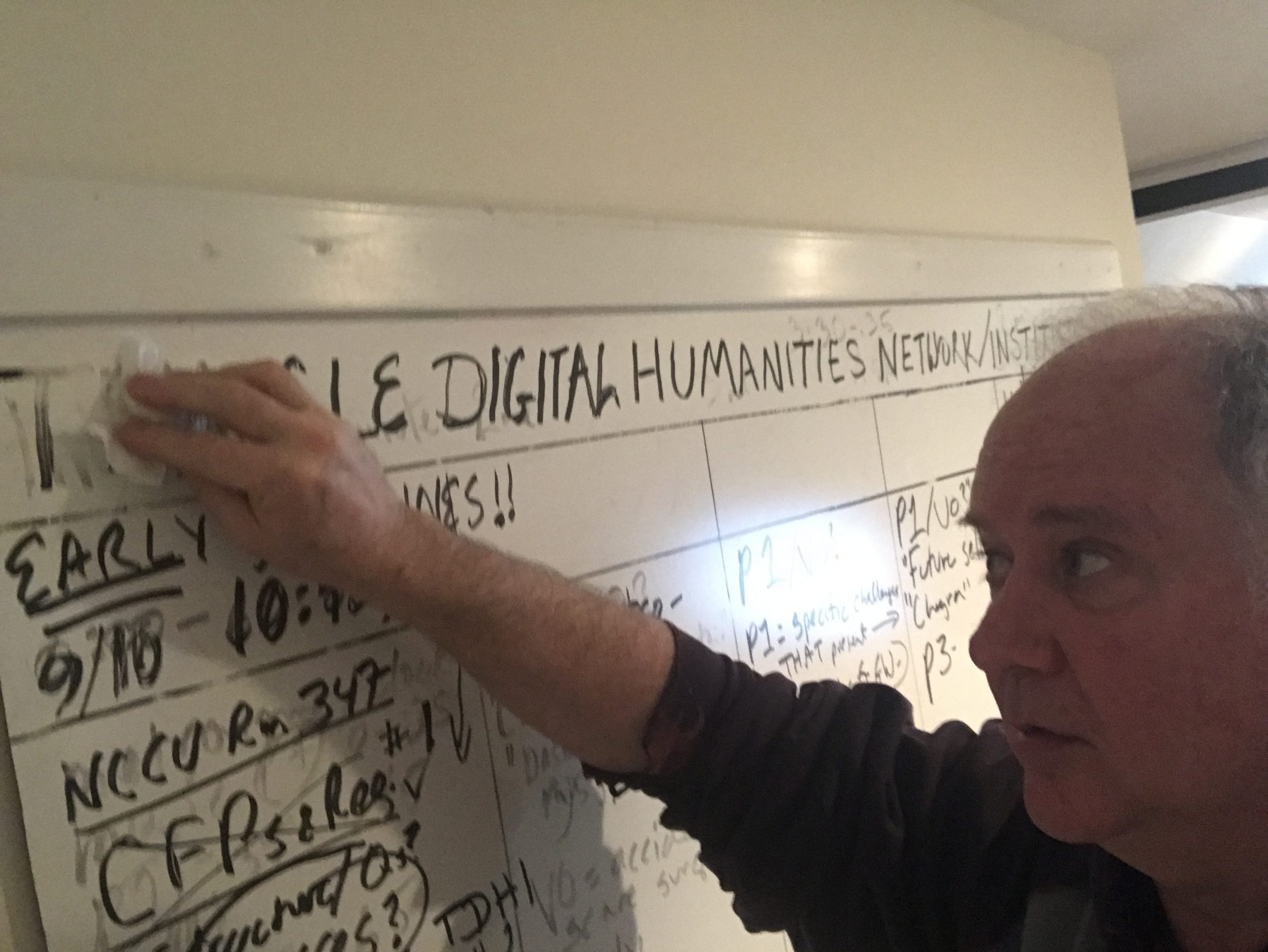By Stuart Parrish
Stuart Parrish is an interdisciplinary studies major at North Carolina Central University who worked with the Digital Humanities Collaborative of North Carolina this semester as the Assistant Writer and Content Manger. He has written articles for our website, conducted interviews, and participated in the planning of the October DH Institute at NCCU. As his internship drew to a close, he wrote a final article reflecting on the experience. It was a pleasure to work with him this semester, and we wish him the best in his future endeavors!
My understanding of critical theory progressed through this internship by recognizing an opportunity to get a foothold and seizing it in the article on Kausatvi Sarkar. Theories like post-structuralism, posthumanism, and deconstruction came into focus, coming from different backgrounds and emphasizing different aspects. My reading and research went deeper than necessary and beyond the scope of my article because I saw a rare chance and took it. I found Dr. Sarkar’s presentation compelling enough to dive in over my head. This article reflected a new skill of reading, researching deeply, and then letting go. We do this over and over as undergraduates, but it so often seemed futile, a waste before. The topics didn’t matter so much, and seemed arbitrary, over and over. The depth of the article was little more than a teaser, a trailer for the movie, vaguely hinting at the plot of the full feature length work. How would the scholars I was rubbing elbows with do this? These would be easy assignments for them, but how would they approach this work? What does a commitment to this process of research-outline-draft-edit-repeat continuously produce as an end result in the way of a professional writer, who publishes scholarly work? The two most scholarly presentations that I attended at the TDHI at NCCU this past October were that by Dr. thomas-houston and Dr. Sarkar. They were at one end of the spectrum, and in between were many other presentations and examples of written and oral communication. The variety of information ranged from casual conversational reflections to student/faculty overviews of a class in digital humanities at the high school level (NCCSM). Central to the experience was being included in the faculty planning committee and access at that stage of the Institute’s development. This high level of engagement was also empowering as the internship was developed and systematically evaluated along the different stages of the semester with my supervisor, Claire Cahoon.
On a Saturday morning near the end of this semester, with most of my internship in the rear view mirror, I had a chance to talk with Collie Fulford, who taught the first class I ever took in Technical Writing over 6 years ago and has contributed majorly to my growth and progress. She complimented me on an article, and specifically mentioned my success in dealing with complexity and arriving at concision and clarity, a long-standing personal goal. I welcomed the opportunity to thank her and give her credit for pointing me in the right direction. Claire Cahoon’s high-level criticism of my writing and thought processes were a practical extension of Dr. Fulford’s training.
This internship was a bit of everything at once, and a modicum of faith was required to avoid believing I had been thrown to the wolves, which was never remotely the case. I now have the advantage of knowing more of what it is that I don’t know as I plan my steps forward. It has been an opportunity that is all too rare for those still below that post-graduate level hoping to make the cut into graduate school and the world of theses and dissertations. What I learned both from Dr. Charles’ Cognition and Dr. Frigo’s Linguistics served me to bridge areas of special terms and concepts in working with the outstanding staff at NCCU’s Writing and Speaking Studios. This semester has given me the structural guidance and editorial feedback necessary for a budding writer to grow, and, as it should be, it has been a challenge. I have connected my earlier studies in cognition and linguistics within the context of the contributions of these fields to critical theory key points and their context within its history. Finally and most importantly, I have a sense of where I stand in the midst of that vast arena of critical thinking.
So, thank you all, (especially Claire). Today is the last day of seeing a new article go up. I met with Brett Chambers at noon in his NCCU office to discuss what I’d be doing next semester. We are planning to create a DH project/presentation of my own. It has been absolutely great. See you at the next DHC-NC Institute!
Thank you,
Durham Person/”Stu”

